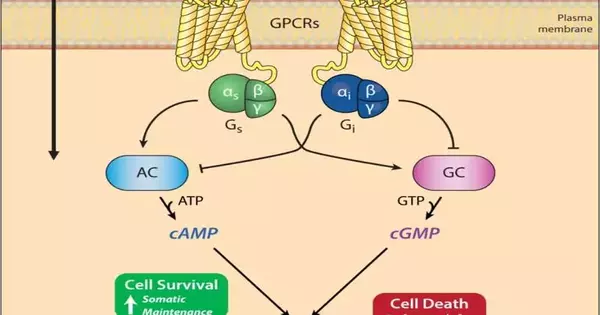Small-molecule drugs with potential clinical applications in the treatment of AMD, diabetic retinopathy, and retinitis pigmentosa (RP) have been discovered in a study led by the University of California, Irvine.
The study was published in the Proceedings of the National Academy of Sciences and was titled “Stress resilience-enhancing drugs preserve tissue structure and function in degenerating retinas via phosphodiesterase inhibition.”
Krzysztof Palczewski, Ph.D., Donald Bren Professor of Ophthalmology at the UCI School of Medicine and corresponding author on the study, stated, “In this study, we introduce a new class of therapeutics called Stress Resilience-Enhancing Drugs” (SREDs) for the treatment of neurodegenerative conditions, specifically the world’s leading causes of blindness in age-related and inherited retinal diseases.” Our prototypical SREDs slowed or stopped the development and progression of retinopathies in a number of genetic and environmental animal models by selective, pharmacological inhibition of cyclic nucleotide phosphodiesterases.”
There are currently approximately 350 million people worldwide who suffer from debilitating vision loss caused by either AMD or DR, and the vast majority of these cases (>90 percent) have treatment options that are either minimally effective or nonexistent. Genetic and environmental disturbances that disrupt the stability of cells and tissues are the root causes of these persistent and progressive retinal diseases, such as retinitis pigmentosa. Over time, these disruptions build up as a result of repeated stress exposure, resulting in progressive visual impairment and, in many instances, legal blindness. Treatment options for the millions of people who suffer from these disorders remain severely limited, particularly in the early stages of disease, when the chance to preserve the retinal structure and visual function is greatest. This is the case despite decades of research.
“In this work, we offer a novel therapeutic class dubbed ‘Stress Resilience-Enhancing Drugs’ (SREDs) for the treatment of neurodegenerative disorders, in particular the most common causes of blindness in the world, age-related and inherited retinal illnesses.”
Krzysztof Palczewski, Ph.D., Donald Bren Professor of Ophthalmology at the UCI School of Medicine.
A systems pharmacology platform that uses cutting-edge disease modeling and characterization to identify novel, mechanism-based therapies that address disease at its source was developed by the researchers in this study to address this pressing medical need. In a variety of models of age-related or inherited retinal disease, the SRED therapeutic intervention preserved tissue structure and function by making the degenerating retina more resilient to both acute and chronic forms of stress. Taken together, these discoveries embody a framework in pharmacology to deal with drug disclosure and improvement, uncovering another class of therapeutics with likely clinical utility in the treatment or counteraction of the most widely recognized reasons for visual impairment.
Lead author Jennings Luu, MD/Ph, stated, “SREDs represent a promising strategy for patients and clinicians to combat disease in earlier stages with superior efficacy over the current standard of care, adding to the arsenal of ophthalmic medications currently available in anti-angiogenics, corticosteroids, and nonsteroidal anti-inflammatory drugs (NSAIDs).” D., Visiting Scholar at the University of California, Irvine, and Doctoral Fellow in Pharmacology at Case Western Reserve University’s Medical Scientist Training Program. At last, it is our assumption that SREDs will sometime act as a norm of care for human maturing, really giving patients the resources to decrease experiencing weakening sicknesses for which there as of now exist no reasonable restorative choices, in this way broadening human life expectancy and health span regardless of illness etiology.”
Luu and Palczewski have co-founded Hyperion Therapeutics, Inc., a seed-stage startup pharmaceutical company that aims to commercialize the intellectual property associated with their recent discoveries and introduce new therapeutic agents for the treatment or prevention of AMD, DR, RP, and other progressive, incurable blinding diseases. These goals are partly based on the discoveries highlighted in this publication. The business recently won the Morganthaler-Pavey Startup Competition, which was held by the Veale Institute for Entrepreneurship. It has also joined the Wayfinder Incubator Program with UCI Beall Applied Innovation; Luu and Palczewski have formed a strategic alliance to work together as co-investigators on a Proof of Product grant that was recently given to them. This grant will help them move their pipeline therapies closer to clinical trials and eventual commercialization.
More information: Jennings C. Luu et al, Stress resilience-enhancing drugs preserve tissue structure and function in degenerating retina via phosphodiesterase inhibition, Proceedings of the National Academy of Sciences (2023). DOI: 10.1073/pnas.2221045120





